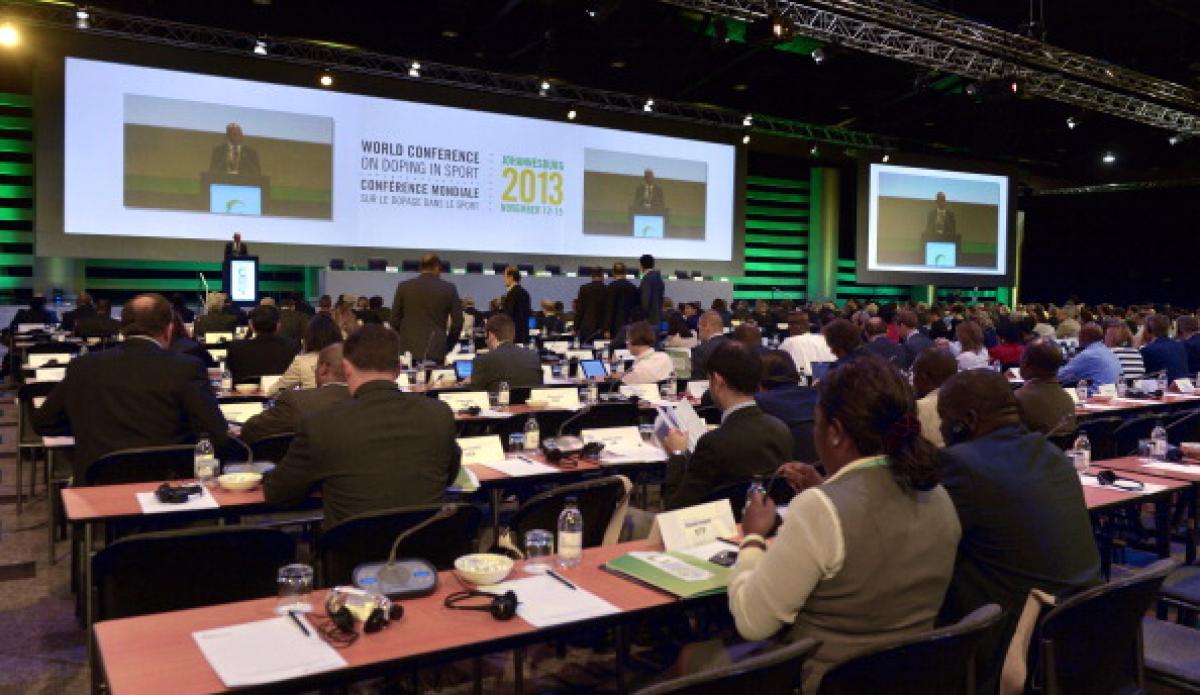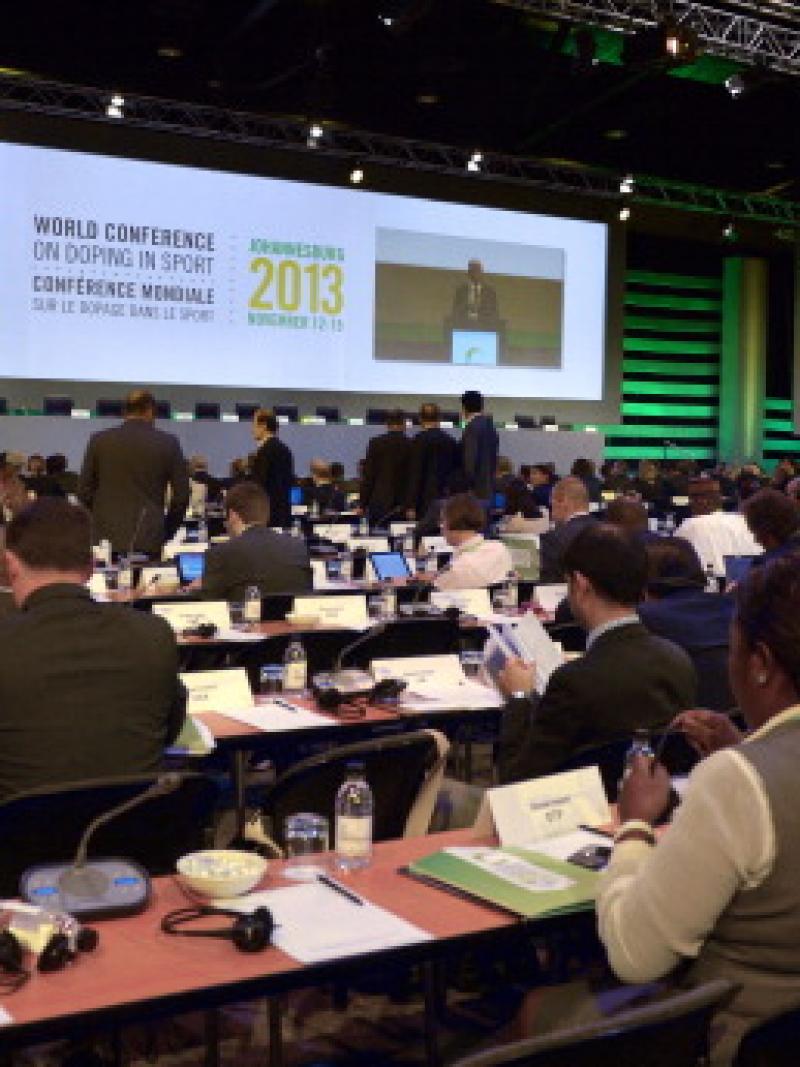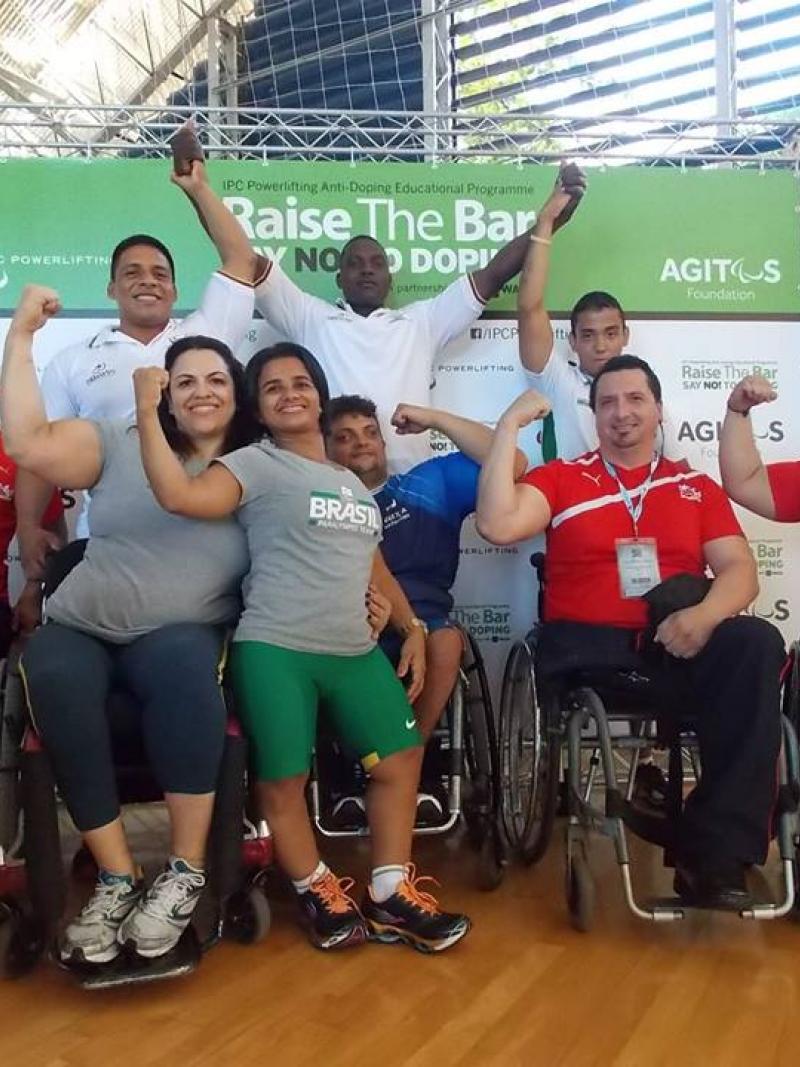Toni Pascual, Todd Nicholson give WADA interventions
The World Conference on Doping in Sport took place last week in Johannesburg, South Africa. 17 Nov 2013
The 2013 World Conference on Doping in Sport is taking place in Johannesburg, South Africa.
“There may be more communication and education materials available than ever before, however, hand on heart, can we all confidently say that we all are doing absolutely everything to ensure athletes all over the world are getting the information they require on anti-doping?”
Toni Pascual, Chairperson of the IPC Anti-Doping Committee, and Todd Nicholson, Chairperson of the IPC Athletes’ Council, both presented interventions at the World Conference on Doping in Sport this past week in Johannesburg, South Africa.
The fourth edition of the World Conference on Doping in Sport is being organised by WADA with the support of Sport and Recreation South Africa (SRSA) and the city of Johannesburg.
More than 1,000 representatives from public authorities, the sport movement, the anti-doping community, athletes, observers and media are in Johannesburg to help shape the future of anti-doping in sport.
In his intervention, Pascual explored the definition word “fault” used in the World Anti-Doping Code.
Pascul commented: “The IPC is concerned that an athlete’s impairment would allow the athlete to claim no fault. We recently had a (Court of Arbitration for Sport) case that involved a blind athlete that the ruling body chose not to sanction since they believed that due to her impairment, she could not be held accountable to the anti-doping rules.
“To avoid situations such as those, we propose that the definition of fault either has an open expression such as ‘any other special consideration’ or is removed from the definition.”
At the conference, Pascual was also reappointed for another term to the WADA Health, Medicine and Research Committee.
In his intervention, Nicholson stressed the importance of education when it comes to anti-doping.
“There are thousands of athletes around the world who have never been given any anti-doping advice whatsoever,” Nicholson said. “As the chair of a body that represents athletes, that greatly concerns me.
“There may be more communication and education materials available than ever before, however, hand on heart, can we all confidently say that we all are doing absolutely everything to ensure athletes all over the world are getting the information they require on anti-doping?”
Nicholson referenced the success of anti-doping outreach at August’s IPC Swimming World Championships, as well as at grassroots and training programmes, though he highlighted the importance of making educational materials accessible for everyone.
“The information needs to be accessible,” he said. “It needs to be available in multiple languages, be able to be read by a person with or without an impairment and be able to be accessed freely by someone without a computer or internet access.”






